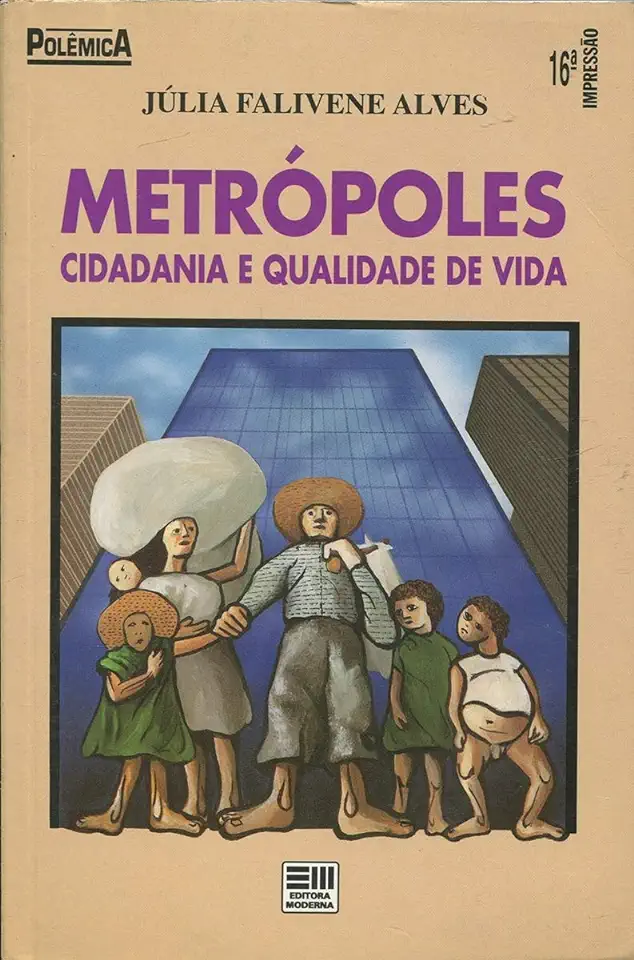
Metropoles Citizenship and Quality of Life - Júlia Falivene Alves
Metropoles Citizenship and Quality of Life: A Comprehensive Exploration of Urban Living
Introduction: Unveiling the Complexities of Metropolitan Life
In the ever-evolving landscape of urban development, the book "Metropoles Citizenship and Quality of Life" by Júlia Falivene Alves emerges as a profound and insightful exploration of the intricate relationship between metropolises, citizenship, and the pursuit of a fulfilling urban existence. Through a comprehensive analysis of various metropolitan regions, Alves delves into the multifaceted challenges and opportunities that define contemporary urban living, offering a compelling narrative that resonates with readers seeking a deeper understanding of the complexities of modern metropolises.
Navigating the Urban Labyrinth: Citizenship in the Metropolitan Context
The concept of citizenship takes on a new dimension within the metropolitan context, as Alves meticulously examines the unique characteristics and challenges that arise in densely populated urban centers. She argues that traditional notions of citizenship, rooted in national identity and territorial boundaries, fall short in addressing the complexities of metropolitan life. Instead, Alves proposes an innovative framework for understanding metropolitan citizenship, emphasizing the importance of social inclusion, participatory governance, and the recognition of diverse urban identities.
Quality of Life: Measuring the Pulse of Urban Well-being
The pursuit of quality of life emerges as a central theme in Alves' exploration of metropolises. Drawing upon a wealth of empirical data and case studies, she constructs a comprehensive framework for assessing the quality of life in urban environments. This framework encompasses a wide range of factors, including access to essential services, housing conditions, environmental sustainability, cultural amenities, and opportunities for personal growth and fulfillment. Alves' analysis provides valuable insights into the factors that contribute to a high quality of life in metropolises, offering practical recommendations for policymakers and urban planners.
Urban Challenges and Opportunities: Shaping the Future of Metropolises
Alves confronts the pressing challenges that metropolises face in the 21st century, including issues of social inequality, environmental degradation, and the erosion of civic engagement. She argues that these challenges demand innovative solutions that leverage the unique strengths and opportunities of metropolitan regions. Alves highlights the potential of collaborative governance, public-private partnerships, and community-based initiatives to address these challenges and foster more sustainable and inclusive urban environments.
Conclusion: Embracing the Metropolitan Mosaic
"Metropoles Citizenship and Quality of Life" concludes with a compelling vision for the future of metropolises, emphasizing the need for a holistic approach that integrates social, economic, and environmental considerations. Alves encourages readers to embrace the diversity and complexity of metropolitan life, recognizing the potential for metropolises to serve as crucibles of innovation, creativity, and social progress. This book is a must-read for urban planners, policymakers, scholars, and anyone interested in understanding the complexities and opportunities of metropolitan living in the 21st century.